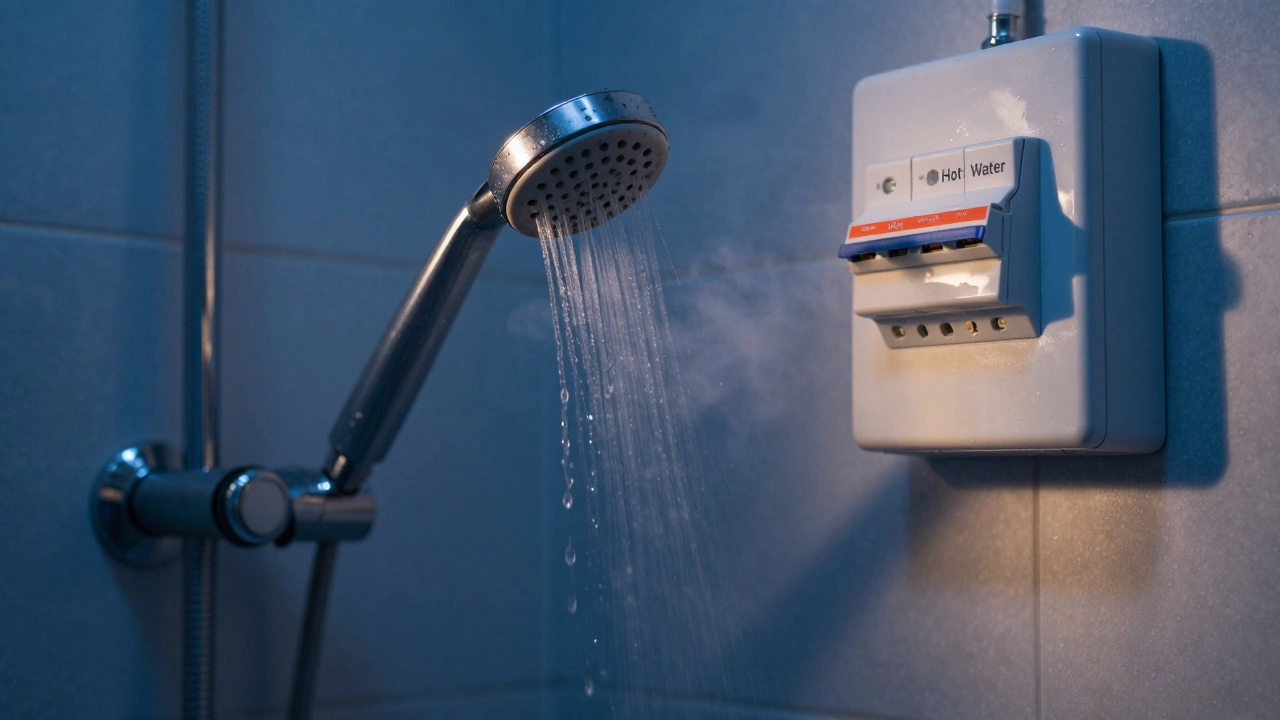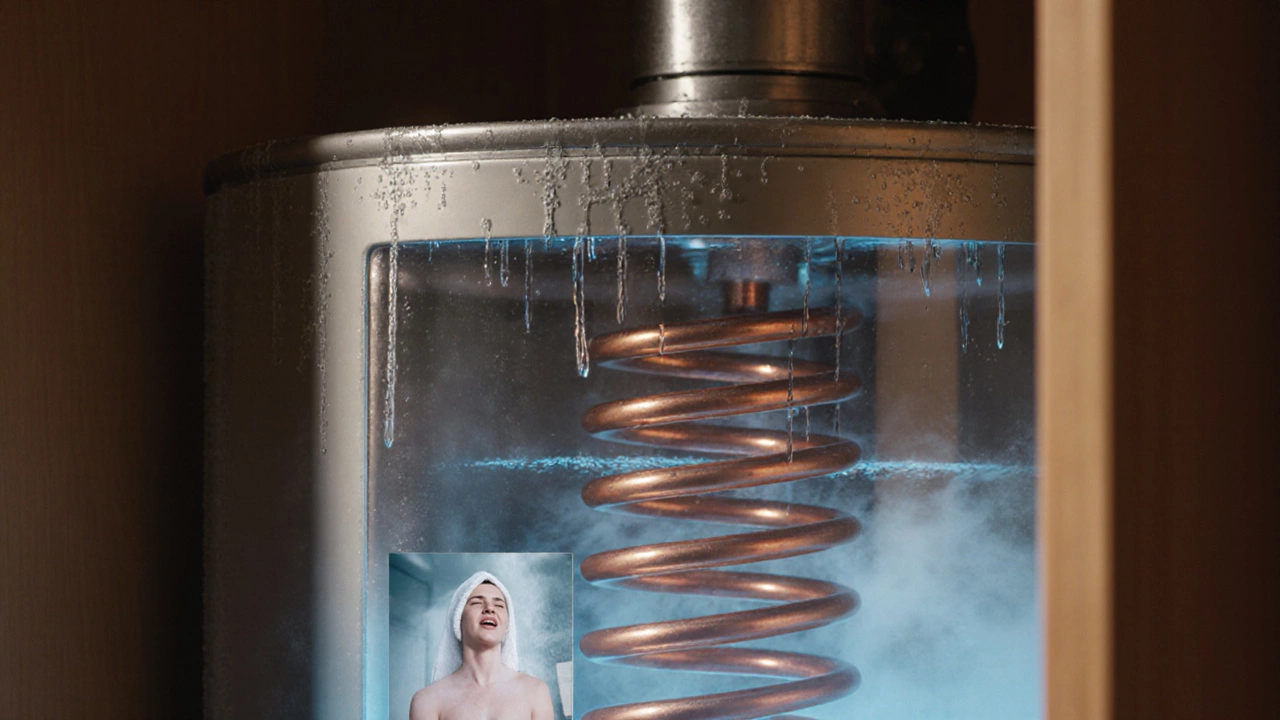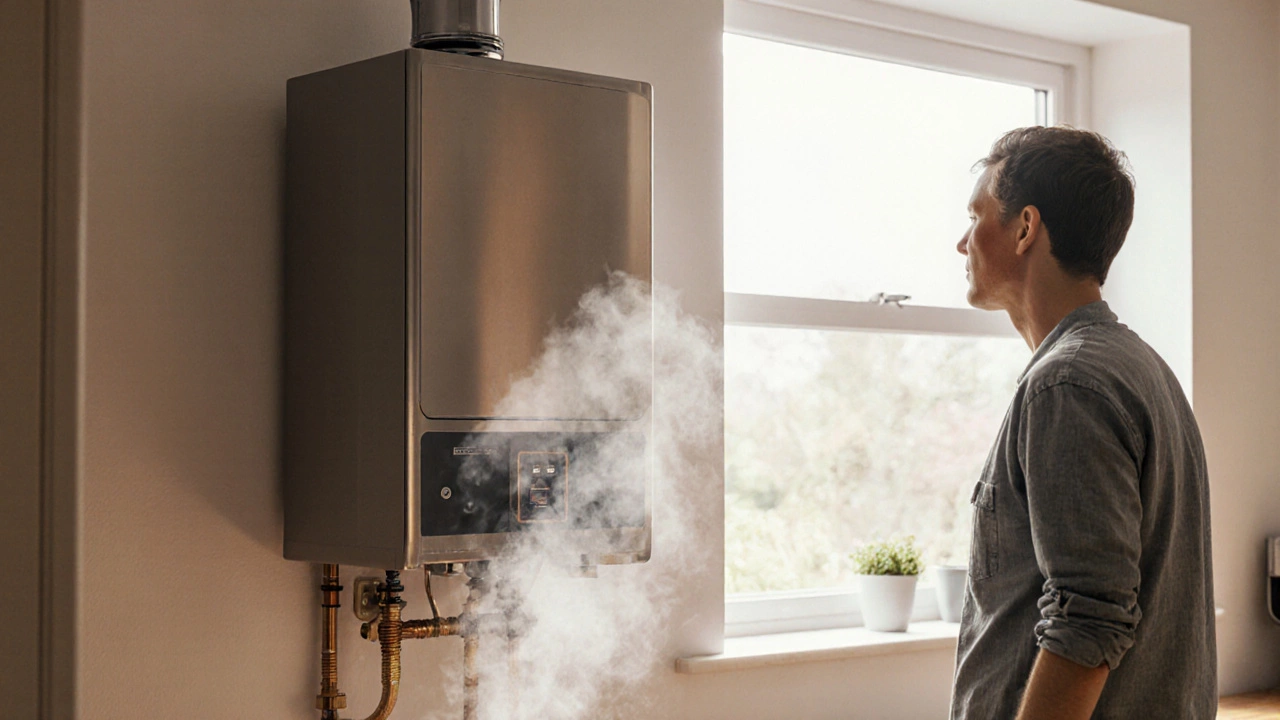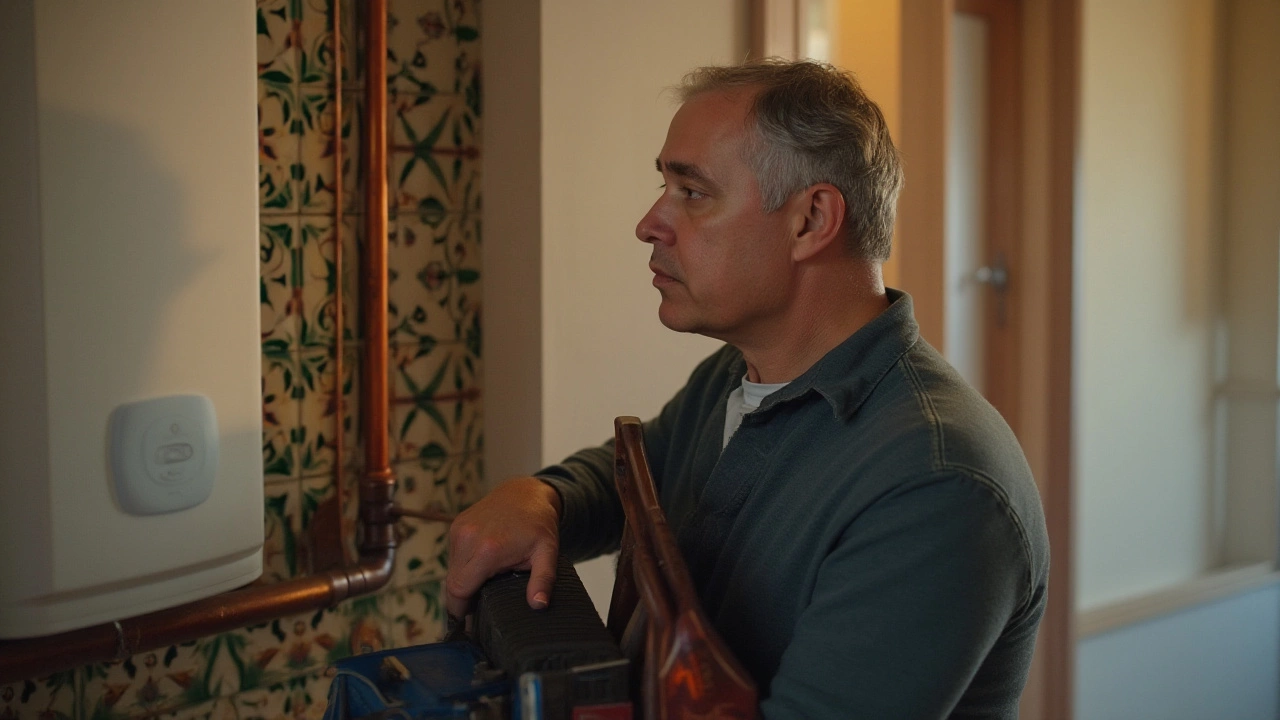Water Heater Troubleshooting – Simple Fixes for Common Problems
If your shower is cold or the heater keeps shutting off, you’re not alone. Most homeowners face the same hiccups, and many of them can be solved without pulling a plumber out of the phone book. Below are the most common gremlins and what you can do about them right now.
Why Your Heater Keeps Resetting
A heater that trips the reset button usually means the thermostat is getting too hot. The most common cause is a buildup of sediment at the bottom of the tank, which blocks heat transfer. Turn off the power or gas, let the tank cool, then open the drain valve and flush out the water. A quick 5‑minute flush can clear a lot of debris and stop the overheating cycle.
Detecting Leaks and Strange Noises
Dripping water around the base of the unit is a red flag. Check the cold‑water inlet and the pressure‑relief valve first – those are the usual culprits. If you hear rumbling or popping, it’s often sediment again, but this time it’s shifting as the heater heats. Flushing the tank, as described above, usually quiets the noise. If the leak comes from a pipe joint, tightening the fitting or replacing a worn seal may be enough.
Next, verify the temperature setting. Many people set the thermostat too high, which not only wastes energy but also speeds up corrosion inside the tank. Aim for 120°F (49°C). That temperature is hot enough for a comfortable shower and reduces the risk of scalds, while keeping the metal inside the tank from breaking down faster.
If you have an electric heater, a tripped circuit breaker can be another sneaky problem. Often the heating elements fail, especially after years of use. Turn off the power and use a multimeter to test each element for continuity. A reading of zero means the element is dead and should be replaced. Most hardware stores carry the right size; just match the wattage printed on the old one.
For gas heaters, a faulty pilot light or igniter can stop hot water in its tracks. Look for a yellow flame instead of blue – that signals incomplete combustion. Clean the pilot assembly with a soft brush and a little vinegar, then relight according to the manufacturer’s instructions. If it won’t stay lit, the thermocouple may need swapping.
Don’t forget the anode rod. This sacrificial metal rod sits inside the tank and attracts corrosion. When it’s gone, the tank itself starts rusting from the inside out. Unscrew the rod with a socket wrench and check its condition. If it’s more than 50% eroded, replace it. A fresh anode can add years to your heater’s life.
When you’ve tried the easy fixes and the water is still lukewarm, it’s time to weigh repair versus replacement. Water heaters typically last 8‑12 years. If yours is older than that and you’ve already replaced the anode and elements, a new unit might be more cost‑effective. New models are more efficient and can lower your energy bill.
Finally, keep a maintenance schedule. Flushing once a year, checking the pressure‑relief valve, and testing the thermostat keep small issues from turning into big, expensive repairs. Write it down in your home‑maintenance planner, set a reminder on your phone, and you’ll never be caught off guard by a cold shower again.
Got a problem that isn’t covered here? Sometimes the issue is hidden behind a wall or requires a professional to safely handle gas lines or electrical components. When in doubt, call a local expert who knows the Glastonbury area. Quick, reliable service can save you stress and keep your home running smoothly.

What to Check When a Hot Water Heater Stops Working
When your hot water heater stops working, check the power, thermostat, heating elements, and pressure valve. Sediment buildup, old age, and gas supply issues are common causes. Simple fixes can restore heat-but if your unit is over 10 years old, replacement is smarter.

How to Identify a Bad Hot Water Heater Element - Simple DIY Test
Learn how to spot a bad hot water heater element, test it with a multimeter, and decide when to replace it or call a pro.

Key Water Heater Signs It’s Failing - What to Watch For
Learn the top warning signs of a failing water heater, why they happen, and step‑by‑step fixes to keep your hot water reliable and safe.

Is It Safe to Reset a Water Heater? Unlock the Mystery Now!
Discover how resetting a water heater can be a game-changer for minor issues like lack of hot water. Understand the potential risks, safety tips, and the reasons why your water heater might need a reset. Avoid common pitfalls and learn when it's best to call a pro. Save money and time with practical advice and ensure your water heater runs smoothly.

Troubleshoot & Fix Your Water Heater's Tripping Issue
If your water heater keeps tripping, it can be both frustrating and inconvenient. This article guides you through the common causes and simple solutions to fix this issue. Learn about faulty elements, electrical connections, and practical safety tips to ensure your water heater operates efficiently and reliably. With a little know-how, you'll be able to troubleshoot these problems like a pro.

Effective Solutions for Fixing Your Cold Water Heater
Dealing with a water heater that's only giving out cold water can be frustrating, especially during the cooler months. This guide offers practical steps to diagnose and repair your water heater issues, ensuring warm showers return promptly. From checking power supply and settings to examining heating elements, this article covers everything you need to fix a cold water heater at home. You'll also find tips on maintenance to prevent future problems.